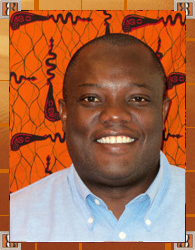Africa Today Seminar: Domains of Post-Electoral Violence in Nigeria
 The April 2011 elections in Nigeria were judged to have been the freest, fairest and most credible since Independence in 1960. Following a cumbersome process of voter registration and accreditation involving the use of biometric technology and resourceful collaboration with civil society, the transparency of the elections was celebrated in many quarters. They were the fourth in the nation’s chequered transition to democracy and were considered an important barometer for measuring the stability of democratic norms and the prospects of political and economic growth and recovery on the African continent.
The April 2011 elections in Nigeria were judged to have been the freest, fairest and most credible since Independence in 1960. Following a cumbersome process of voter registration and accreditation involving the use of biometric technology and resourceful collaboration with civil society, the transparency of the elections was celebrated in many quarters. They were the fourth in the nation’s chequered transition to democracy and were considered an important barometer for measuring the stability of democratic norms and the prospects of political and economic growth and recovery on the African continent.
However violence heightened pre-election insecurity and contributed to low voter turnout in some areas. Against the background of sectarian violence perpetrated by a fundamentalist group known as ‘Boko Haram’ in 2009 and growing tensions between the predominantly Muslim Northern political elite and Southern Christians, the elections culminated in gruesome massacres in Northern Nigeria. One opposition party alleged that the polls had been rigged in favour of the incumbent president, implying that the disputed results were responsible for the carnage. The violence amounted to what was branded ‘a national sacrilege’ with the murder of members of the National Youth Service Corps, repeated attacks against security forces and renunciation of Nigeria’s Constitution. The transmogrification of the violence raises questions about the unity and viability of the Nigerian state in its present multi-ethnic form.
What factors account for this post-electoral violence and why did it not spread with reprisal attacks? What inhibited conflict mobility? How will the conflict affect governance in the current electoral cycle? What are the main domains of analysis for this tragic response to a unique transition in a country historically plagued by factional politics as well as simmering religious resentment? This paper examines these and other questions within the rubric of ‘autonomous domains of explanations’. While religion and ethnicity remain significant in understanding Nigeria’s post-electoral violence, it is argued that, given the complexity of the case and the lack of religious and ethnic uniformity in the targets and victims of that violence, these customary variables are not exhaustive.
Oka Obono is Associate Professor of Sociology at the University of Ibadan, Nigeria. He has spent the past 20 years working on population, methodology, culture, communication, health and policy issues at the University of Calabar (1990-1998), University of Ibadan (1998-date), Brown University (2000-2003) and Bowen University (2005). He is Guest Faculty at Nigeria’s National Defence College, Abuja (2007- date) and has supervised four PhDs and over 45 MScs to completion. Dr. Obono is author of more than 35 peer-reviewed scholarly publications and above 50 technical reports and monographs. A methodologist with advanced skills in qualitative and quantitative research, he is Editor of the book of empirical studies, A Tapestry of Human Sexuality in Africa (2010) and is currently working on the Manual of Methodology for Fieldwork in Africa. He writes a weekly column on the policy predicaments of the Nigerian state and civil society and hopes to use the resources and environment that the African Studies Centre provides during his visiting fellowship to advance these and other writing interests.

